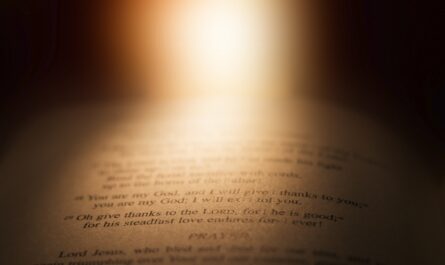Our most recent COVID surge had me researching, again, the rules and recommendations around exposure. As much as I had been able to block it out, I recalled there is a massive amount of vague, uncertain, and conflicting information available on this topic, especially from so-called reliable and authoritative sources. Unfortunately, uncertainty has been the plague of this pandemic.
Despite being regenerate Christians, we are not all-knowing or infallible. Instead, our transformation into the likeness of Christ is from one degree of likeness to another (2 Cor 3:18). Does uncertainty mean something different to Christians and non-Christians? Faith is a product of the call of Christ. He calls us, and we can believe (have faith in) Him as a result. But faith, or belief, is the assurance of things not seen (Heb 11:1). In this life, there will never be a time of knowing completely or “not-Not Seeing.” Therefore, faith will be ever-present in the Christian in this life.
Being free from uncertainty is something that all humans want. So we search, explore, and study. After all, being free from the grip of the unknown was the proposal that was part of the original temptation of man (Gen 3:5). But I would propose that there are different types of not knowing.
When regenerate Christians don’t know
First, there is a godly type of not knowing. My description of the godly kind of uncertainty comes from Proverbs 25:2.
It is the glory of God to conceal things,
but the glory of kings is to search things out.
God intentionally conceals things to proclaim His glory. God is also unsearchable and unknowable (Job 36:26). These realities mean explorers and scholars will never get to the bottom or end of God. Even in the age to come, there will always be an infinite amount of unknowns about God. How do I know this? Infinite is an essential aspect of His nature. Infinite means no beginning and no end. Infinity is part of God’s glory and indeed the thing that marvels the person that loves God. It is an aspect of God that we treasure about Him. Being hungry and thus satisfied for more everything from God is the main thing we will be doing for eternity (e.g., Lam. 3:22-23). In addition to renewing mercies every morning, God calls us to seek and search for Him (Luke 11:9), and it is His pleasure to reveal Himself. This type of uncertainty is joyful, challenging, engaging, and rapturous. There will always be “more” and “new” for all of eternity. It is a task from which we will never be distracted and for which we will never tire.
When the non-Regenerate don’t know
Second, at least two types of uncertainty do not end in rapturous enjoyment but strife. These uncertainties are permanent and fatal for those not called by Jesus Christ.
Part of the original curse was a sense of futility (Romans 8:20) placed by God on creation. Read in Romans about the purpose of that futility. I think futility is also related to the dim mirror (1 Cor. 13:12) through which all people experience reality. We can contrast our current reality with the Christian’s future of knowing “fully.” The Christian’s hope and belief of fully knowing can be further distinguished from the non-Christian’s current angst and ultimate permanent darkness (Matt 22:13). In summary, there seems to be a general confusion in the world caused by God and upheld by God, Who likely uses multiple means to maintain it. Some will escape it through grace. Others will never escape it.
The second type of uncertainty comes through active deception. One means for this deception is Satan, who is called the “father of lies” (Jn. 8:44). Satan lies and actively attempts to deceive all people. He is much more competent at this than we know because one of his strategies is to play on our pride and convince us that we know things even when we are entirely in the dark. The first recorded active deception was initially subtle (Gen 3:1, “…did God actually say…?”) and then more bold (v. 4 “…you will not surely die.”). In this exchange, Satan created uncertainty, and then he inserted a lie that was believed and enacted. The resulting confusion led to the Original Sin, which both Adam and Eve committed confidently. Another clue about the means of deception comes from Romans 1:18 and 20. In the form of pride and self-exaltation, sin leads people actively to reject the truth and accept anti-truth, or lies. Certainty about lies being the truth is also a form of not knowing. We must falsely believe that we see things for what they are to continue mistaking a lie for the truth. For the Christian, God initiated and created the refulgence of the opening of the eyes of the heart (Is. 29:18) and the promise of knowing as we are known. To the non-Christian, there is only blindness upon blindness (Is. 6:10) in this life, along with constant surrender to deceptions, and finally, outer darkness.
The Christian is hungry for knowledge of God, knowing (and rejoicing) that this hunger will be both constantly and increasingly renewed and satisfied. The non-Christian has two unfortunate situations. The first is the false belief of being in the know or not deceived when actively deceived. We often have a sense of pride in our ability to know things and empty confidence in the knowledge we have achieved. The second is the ultimate futility of not knowing. While their desire for learning will be endless, they reject the source of fulfillment, which is God. God is the source of their desire, but they hate God. They have a constant and permanently unfulfilled desire. There is no end to their longing because the Truth (Jn. 14:6) is not beautiful.


